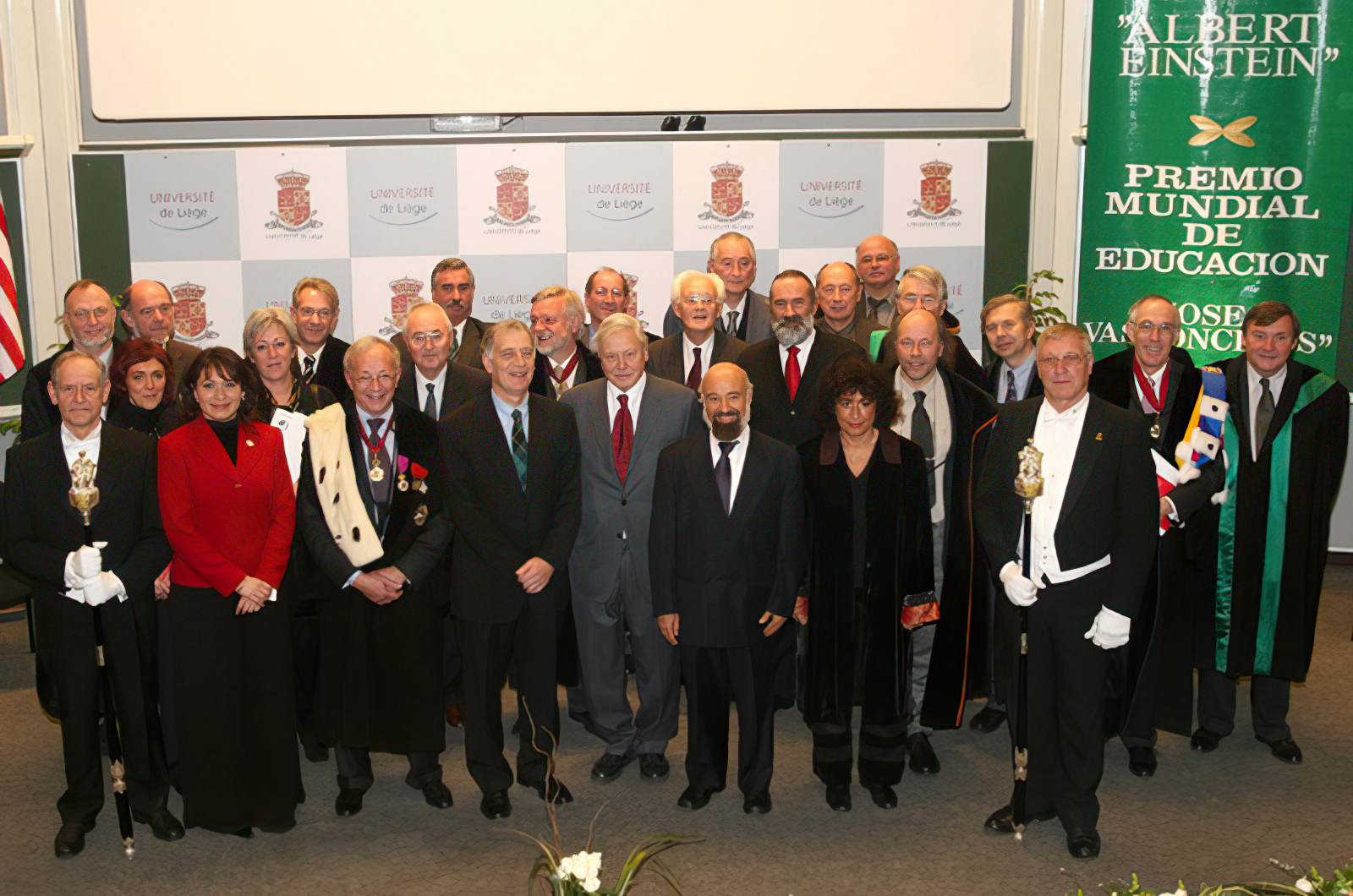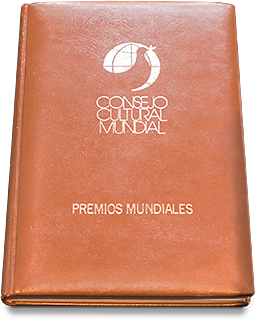
 Date: 08 November 2004
Date: 08 November 2004
Place of Ceremony: Amphithéâtres de l’Europe
Host Institution: University of Liège
Host Country: Liège, Belgium
Liège, Belgium. November 8th
“Society needs our results and our best judgements,” Prof. Ralph J. Cicerone said after receiving the Albert Einstein Award.
Prof. Cicerone explained at his response “International agreements that limit emissions of synthetic halogenated chemicals are preventing the ozone hole from continuing to grow and as atmospheric amounts of these chemicals decrease, the hole will cease to form, perhaps in some tens of years. Biological sensitivities to ultraviolet light which passes through air with subnormal ozone amounts, are being studied as are natural, biological sources of some brominated and chlorinated chemicals. Knowledge of the human-perturbed ozone layer preceded our understanding of the natural system that controls it”.
“…Scientists from many countries have worked separately and together to understand the importance of the Earth’s ozone layer, to map out the processes that control it and to assess the extent of human impact. Because the ozone layer is global, the involvement of scientists from around the world is only appropriate”.
Sir David Attenborough highlighted on his acceptance speech for the 2004 José Vasconcelos Award that:
“Today, human beings are in danger of losing touch with that world.
“…we must treasure the natural world for reasons that are something other than narrowly practical. It is the source of much of our joy and happiness. It brings us solace in times of trouble and understanding it and the way it works can bring the most profound pleasure and the greatest of all intellectual rewards. In damaging it, we are damaging ourselves. Understanding it is, I believe, one of the most important elements in all education. If the World Cultural Council considers that I have contributed to that process, then I could ask for no greater compliment and I am deeply grateful.”
Both laureates received from the President of the World Cultural Council Rafael Estrada, the Rector of the University of Liège Prof. Willy Legros and Prof. Cornelis de Jager, Founder Member of the Council and Chancellor of The Global Foundation the Medal, the Diploma and the Award Check.
During his welcome address the Rector of the University, Prof. Willy Legros expressed:
“As the start of the 21st century is shaken by important economic changes and resulting multiple conflicts, the notion of culture seems to have taken a back seat. Most of the planet is fighting for basic material survival and the existence of the remaining minority only seems to focus on accumulating and consuming material goods.
“The role of the scientific community is essential in this regard. It is the responsibility of scholars in general, and that of the University in particular, to recall the importance of knowledge in social and individual development. If the actions taken to preserve, create and transmit knowledge contribute to technical progress, they remain, above all, factors of civilisation in the broadest sense of the word. There is no harmonious societal life possible without this sharing of knowledge that is the very foundation of a common culture. Democracy is impossible if this shared knowledge does not integrate the highest human values and cannot be called into question while opening up to the knowledge of others”.
Rafael Estrada, President of the Word Cultural Council was pleased to crown the Council’s 20th Anniversary celebrations at the University of Liège.
“My gratitude to the Rector, Willy Legros, and to the authorities of the University of Liège for hosting this memorable event, and for an ongoing relationship; although one stage of it has been crowned, we hope that it will grow and prosper even more in the future.
“…The crisis of one person becomes the crisis of the people, and the crisis of a country becomes the crisis of the whole world. The destiny of nations will be in the hands of those who today are university students. The future will soon be the present, so we must work towards it and not expect things to sort themselves out. We must carry on in our educational work, fine-tuning it day by day. This takes time, as time is needed to await the harvest of any seed.
“We must consider the current difficult juncture as an opportunity, as one of history’s great periods of transition, in which the foundations must be laid for the rise of a new kind of human – one more evolved in social awareness, in tune with the new times, since the effort required to better serve mankind implicitly entails an evolution.
“Last but not least I would like to tell the award-winners present today, Prof. Ralph Cicerone and Sir David Attenborough, and with them all those visionaries who have been able to add a great heart to a brilliant mind, that humans of their standing bear faithful witness to the fact that we are making progress. They are the testimony that, despite the dark clouds looming over us, we can forge ahead with the optimism that this world and mankind will outlive all its shortcomings and that we can make of this new millennium, in which we are now living, the best millennium in history”.


